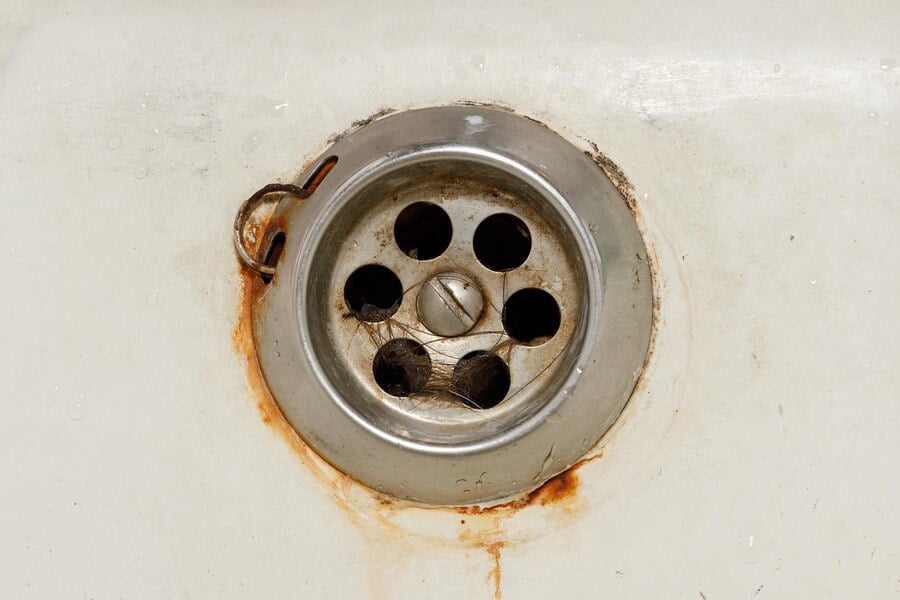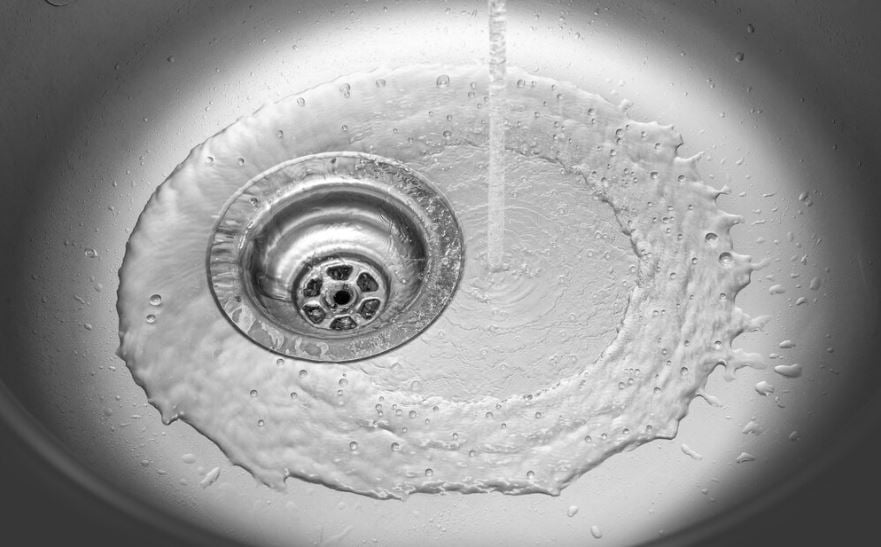The Hidden Dangers of Clogged Drains in Massachusetts
Clogged drains can be a real headache for homeowners. Not only do they cause unpleasant odors and slow draining fixtures, but they can also lead to damage to property and plumbing systems. However, the dangers of clogged drains go beyond just inconvenience and damage. They can also pose health risks and affect water quality. In this blog post, we will discuss the causes of drain clogs in Massachusetts, how to recognize warning signs, the hidden dangers of ignoring clogged drains, and how they can affect water quality. We will also provide preventative measures that you can take to avoid drain clogs and keep your home safe and healthy. So, if you want to learn more about the hidden dangers of clogged drains in Massachusetts, keep reading!

Understanding the Causes of Drain Clogs in Massachusetts
Tree roots and foreign objects are often the main culprits behind drain clogs in Massachusetts. Grease, hair, and non-flushable items can also have a significant impact on blockages. Improper waste disposal practices can lead to clogged drains as well. It’s important to recognize the contribution of kitchen sink usage to drain clogs. Over time, the accumulation of materials can cause a blockage in the drain system. To prevent such plumbing issues, homeowners should be mindful of what they dispose of down the drain. Regular maintenance, including camera inspections and using hot water to flush drains, can help identify potential problems early on.
The Role of Tree Roots and Foreign Objects
Understanding how tree roots infiltrate sewer pipes and the risk of foreign objects like cat litter causing blockages are crucial when addressing plumbing issues. These tree roots and foreign objects can significantly impact wastewater flow, leading to potential damage to the entire plumbing system. Seeking professional help is essential for effectively dealing with tree root and foreign object blockage. If left unaddressed, tree roots and foreign objects can lead to severe damage to sewer systems, costing homeowners thousands of dollars in repairs. By conducting camera inspections and employing secure websites for proper disposal methods, Massachusetts residents can avoid these hidden dangers.
The Impact of Improper Waste Disposal: Grease, Hair, and Non-Flushable Items
Grease, hair, and non-flushable items can have a significant impact on drain systems. The accumulation of grease in the pipes can lead to plumbing issues, causing clogs and blockages. Similarly, hair can easily get tangled in plumbing fixtures, resulting in drainage problems. Flushing non-flushable items, such as dental floss, can also pose risks, as they can get caught in the pipes and contribute to blockages. Homeowners need to be aware of these dangers and consider drain cleaning services to prevent any further complications. Proper waste disposal is crucial for maintaining the integrity of the plumbing system and avoiding costly repairs.
Recognizing the Warning Signs of a Clogged Drain
Identifying the warning signs of a clogged drain is crucial for homeowners in Massachusetts. Unusual noises coming from the pipes can indicate drain clogs and should not be ignored. Additionally, if fixtures like sinks or showers are draining slowly, it could be a sign of underlying drainage issues. Unpleasant odors emanating from the drains are another red flag that should not be overlooked. Homeowners should also take note of frequent plumbing backups, as they can be a result of drain blockages. Furthermore, clogged drains can lead to water pressure problems, affecting the overall plumbing system. Being aware of these warning signs can help homeowners address plumbing issues promptly and avoid further damage.
Unusual Noises and Slow Draining Fixtures
Gurgling sounds are often indicators of drain clogs, signaling the need for action. In the kitchen, slow water flow from the sink can be a sign of drainage problems that shouldn’t be ignored. Similarly, bathtub drainage issues may also point to clogged drains. These clogs can have a direct impact on water pressure, causing a decrease in its strength. When fixtures drain slowly, it’s important to recognize the need for professional plumbers, who can assess the situation and provide the necessary solutions. Taking prompt action is essential to prevent further damage to the plumbing system and ensure optimal water flow.
Unpleasant Odors and Frequent Plumbing Backups
Foul smells emanating from drains are a common indication of blockage. These odors can be quite unpleasant and signify the presence of accumulated debris and bacteria. Another red flag is frequent plumbing backups, especially when it comes to sewage. When drains are clogged, wastewater can’t flow freely, leading to backups and potential contamination risks. It’s crucial to address these issues promptly to prevent any health hazards. Professional help should be sought to effectively clean drain clogs and restore proper drainage. Ignoring clogged drains can lead to significant damage to the plumbing system, which may require costly repairs.
The Hidden Dangers of Ignoring Clogged Drains
Ignoring clogged drains can lead to a range of hidden dangers that should not be underestimated. Firstly, it’s important to understand the health risks associated with clogged drains. Stagnant water and organic matter can create the perfect breeding ground for bacteria and other harmful microorganisms. Additionally, the damage caused by clogged drains can extend beyond just your plumbing system. Water that backs up from clogs can seep into walls, floors, and foundations, leading to costly repairs. Financial implications are not the only concern; dealing with clogged drains can also be a hassle and require extensive cleanup. Lastly, disregarding drain blockage problems can have long-term consequences, potentially resulting in more severe plumbing issues down the line.
Health Risks Associated with Clogged Drains
Clogged drains pose health risks by promoting the growth of harmful microorganisms. These clogs increase the likelihood of water contamination, which can lead to serious health issues. Additionally, drain blockage can contaminate wetlands, harming the ecosystem. Sewage backups caused by drain clogs can compromise sensitive information and cause further health hazards. To mitigate these risks, it is essential to seek the expertise of professional plumbers who can effectively address clogged drains and prevent health problems. By addressing plumbing issues promptly, homeowners can safeguard their wellbeing and avoid potential health hazards associated with clogged drains.
Damage to Property and Plumbing Systems
Drain clogs pose a significant threat to property and plumbing systems. They can damage pipes, leading to leaks and blockages, which can be costly to repair. Additionally, clogged drains can cause water damage and promote the growth of mold, creating potential health risks for homeowners. These issues can also have a long-term impact on plumbing appliances, reducing their lifespan. Furthermore, drain clogs are often linked to sewer system backups, which can lead to further property damage and contamination. Therefore, it is crucial to seek timely drain cleaning services to prevent these hidden dangers and protect your property.
How Can Clogged Drains Affect Water Quality?
Clogged drains have a significant impact on water quality. When drain clogs occur, they can lead to water contamination as wastewater is unable to flow properly. Additionally, sewage backups from clogged drains can affect stormwater drainage, causing further issues. To maintain water quality, it is crucial to address drain clog problems promptly.

Contamination and Changes in Water Color
Clogged drains can create stagnant water, which becomes a breeding ground for harmful bacteria and other contaminants. Over time, this stagnant water can become discolored, indicating potential contamination. Additionally, clogs can cause fluctuations in water pressure, leading to changes in water quality and the possibility of harmful chemicals entering the water supply. To ensure safe and clean water for your home or business, it’s crucial to regularly clean and maintain drains. By preventing clogs, you can avoid the risks of contaminated water and protect the health of Massachusetts residents.
What Are the Preventative Measures to Avoid Drain Clogs?
Prevent drain clogs by avoiding pouring grease, oil, and coffee grounds down the drain. Use a drain strainer to catch hair, food particles, and debris. Clean your drains regularly with baking soda and vinegar or a commercial drain cleaner. Consider professional drain cleaning services for prevention.
How Frequently Should Drains Be Cleaned in Massachusetts?
To prevent clogs and blockages, it is recommended to clean drains in Massachusetts at least once a year. Homes with large families or frequent guests may require more frequent drain cleaning. Hiring professional services can help to inspect drains for potential issues and save money on costly repairs in the long run.
Conclusion
Ignoring clogged drains can lead to serious consequences, both for your health and your property. The accumulation of foreign objects, grease, and hair can result in unpleasant odors, frequent plumbing backups, and even damage to your plumbing system. Additionally, clogged drains can affect the quality of your water, leading to contamination and changes in color. To avoid these hidden dangers, it is important to recognize the warning signs of a clogged drain and take preventative measures such as regular drain cleaning. By prioritizing the maintenance of your drains, you can ensure the safety and longevity of your plumbing system and protect the water quality in your home. Contact us today or visit our website to schedule a drain cleaning appointment and safeguard your home from the hidden dangers of clogged drains.
